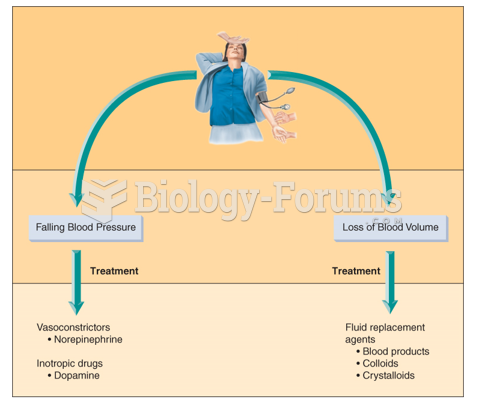|
|
|
Medication errors are more common among seriously ill patients than with those with minor conditions.
About 60% of newborn infants in the United States are jaundiced; that is, they look yellow. Kernicterus is a form of brain damage caused by excessive jaundice. When babies begin to be affected by excessive jaundice and begin to have brain damage, they become excessively lethargic.
Pink eye is a term that refers to conjunctivitis, which is inflammation of the thin, clear membrane (conjunctiva) over the white part of the eye (sclera). It may be triggered by a virus, bacteria, or foreign body in the eye. Antibiotic eye drops alleviate bacterial conjunctivitis, and antihistamine allergy pills or eye drops help control allergic conjunctivitis symptoms.
The heart is located in the center of the chest, with part of it tipped slightly so that it taps against the left side of the chest.
A headache when you wake up in the morning is indicative of sinusitis. Other symptoms of sinusitis can include fever, weakness, tiredness, a cough that may be more severe at night, and a runny nose or nasal congestion.
 Bow shock formed by the magnetosphere of LL Orionis (center) as it collides with the Orion Nebula fl
Bow shock formed by the magnetosphere of LL Orionis (center) as it collides with the Orion Nebula fl
 Pathophysiology of celiac disease. In susceptible individuals, gluten-containing foods are digested, ...
Pathophysiology of celiac disease. In susceptible individuals, gluten-containing foods are digested, ...





